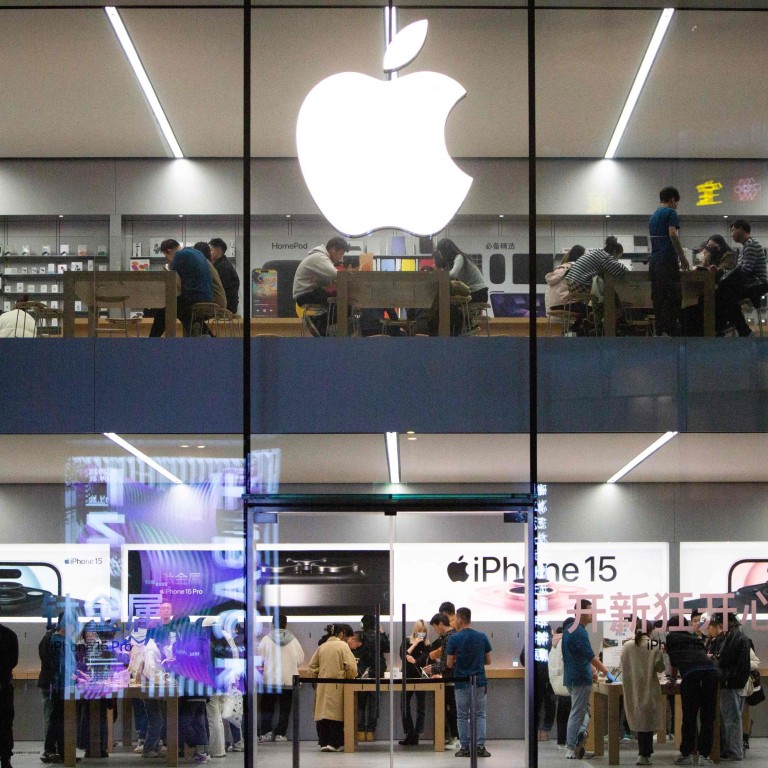
Chinese police crack down on ‘Apple ID loan’ rackets, some of which were advertised under Tim Cook’s name
- In these schemes, borrowers are asked to sign out of their Apple devices and log back in using an Apple ID provided by the lender
- Some lenders had advertised their services using the surname of Tim Cook, Apple’s CEO, according to media report
Police in China have arrested more than 40 people in relation to fraudulent schemes that target iPhone users in the country, whereby people give up their personal Apple IDs to obtain a loan, allowing the lenders to abuse their accounts.
In a typical example of how the scheme works, borrowers are asked to sign out of their Apple devices and log back in using an Apple ID provided by the lender. If borrowers fail to make repayments on time – usually at interest rates much higher than the market average – the lender threatens to block their device, call their contacts and divulge personal information.
In a recent crackdown, the police arrested nine groups of people involved in these rackets, covering 41 suspects across 21 provinces. The suspects had made loans to more than 20,000 people, involving 130 million yuan (US$18.3 million), according to the state-run China News Service, citing the public security bureau of Wuxi County in southwestern Chongqing city.
Hong Kong customs arrests 3, seizes HK$10 million in fake electronic devices
Some of the lenders had advertised their services using the surname of Tim Cook, Apple’s CEO, according to the report. In a June case in Jiujiang city, Jiangxi province, police arrested 10 suspects from Chuzhou city in neighbouring Anhui province.
State-run Xinhua News Agency warned in 2019 about fraudulent “Apple ID loan” cases, with some demanding repayments within a week at exorbitant annualised interest rates of up to 2,800 per cent. Lenders had lured customers to the schemes by promising “no need for loan collateral or credit reports”.
The rip-off interest rates in such schemes compare with more affordable loans from banks, which have cut rates to boost spending amid economic headwinds. The average interest rate on bank consumer loans dropped to 3.41 per cent in November from 4.2 per cent a year earlier, according to Rong360 Digital Technology Institute, a Beijing-based market researcher.
Among Chinese smartphone phone users, about one in five use an iPhone, equating to about 250 million people.

